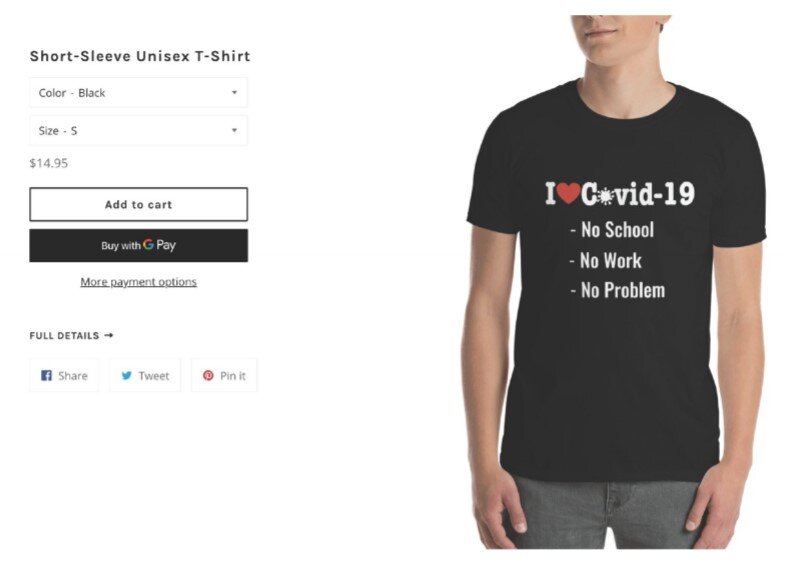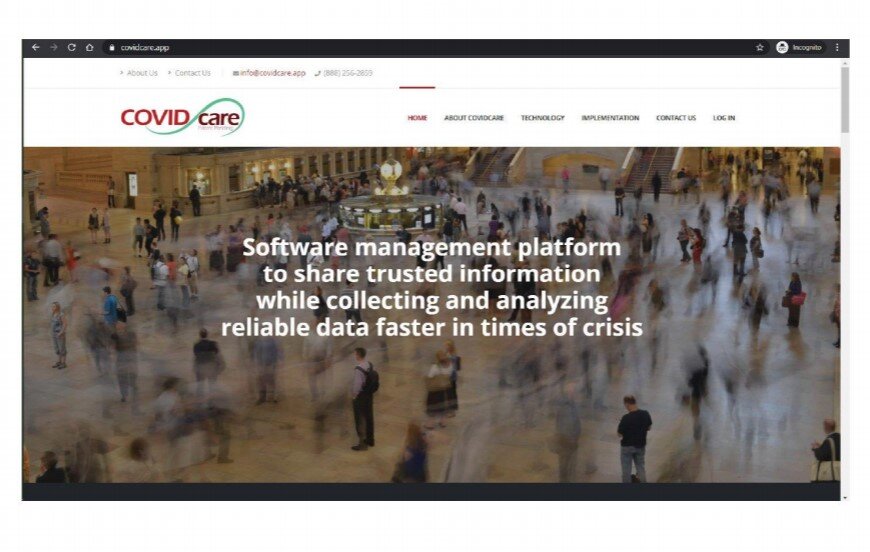Opportunistic Applications: an Analysis of Coronavirus-Related Trademarks
Margo Cruz | March 25, 2020
Since the COVID-19 crisis began, applicants have filed approximately 30 USPTO trademark applications attempting to protect some form of the words “coronavirus” or “COVID-19.” Many of these miss the mark and are merely attempts to capitalize on a global pandemic. Because of a fundamental misunderstanding of the nature of trademarks and the requirements to secure trademarks, the vast majority of these will not receive exclusive rights to these marks.
Other publications (e.g., Law360, Techdirt, and Reclaim the Net) have covered some of these filings, but we took a closer look at all of the recent USPTO filings with COVID or coronavirus in the literal element.
Many applied-for marks lightheartedly poke fun at the virus, featuring taglines such as “I survived Corona” or “I Heart COVID-19.” Evaluating the potential success of some of these marks, Law 360 reporter Bill Donahue points out that trademark applications for apparel based on recent events are seldom approved (for example, none of the “Covfefe” or “Boston Strong” trademark applications were approved).
While this COVID/coronavirus trademark-mania seems to be less prevalent in Europe, there have been Spain-based trademark applications at the EUIPO for COVID19 Patrol and CORONAVIRUS. Meanwhile, the Chinese Trademark Office has curtailed attempts to trademark the names of people and hospitals in Wuhan associated with the virus.
In the United States, this flurry of trademark applications may be due to a misunderstanding of the purpose of trademarking. Trademarks allow businesses to uniquely distinguish their goods and services from those of others. Many of the filed applications seek to protect apparel printing or designs, but trademarks do not provide exclusive use of commonplace words on apparel. Indeed, some trademarks seeking exclusive use of COVID or coronavirus for particular goods or services appear to have been filed without an attorney and may explain the misunderstanding of trademark prosecution.
Generally, these applications suffer from a few core issues: lack of actual use, failure to function as a trademark, and genericness.
(1) Many of the trademarks are not in use or did not show use.
Most of the applied-for marks are filed under section 1(b) of the Lanham Act, meaning they are not currently in use. Of course, this is permitted under the Lanham Act, but these sorts of applications do suggest that the applicants are eager to secure their rights to the trademark.
Eleven of the applications we identified were filed as 1(a) applications in which the applicants claim that the marks are already in use. The vast majority claiming use, however, did not provide specimens showing use of the mark in commerce (a requirement for registration of the trademark).
(2) The applied-for trademarks do not serve to identify the sources of the goods or services.
A registrable mark must act as a source identifier for a good or service; an image or phrase on a T-shirt does not identify the source of the goods and is therefore not registrable.
One applicant who has filed several coronavirus-related trademark applications is Kenyonken Productions, which maintains a YouTube channel with the tagline “Just a kid who’s trying to make a $100,000,000,000 bucks.” Indeed, Kenyonken Productions has filed seven coronavirus-related applications, including some using specimens showing the proposed mark on a t-shirt, but they specimens do not include evidence that any of them are being sold. However, this is required under TMEP §901, which states that “the mark must be in use in commerce on or in connection with all the goods and services listed in the application as of the application filing date.”
Examples of Kenyonken’s specimens include: 88836107, 88836098, and 88836130.



The specimens are not likely to satisfy the USPTO because the designs are not intended to be used on all goods and services produced by the company (to indicate that the goods and services came from said company). They will likely receive office actions under TMEP §904.03(a), which provides, in relevant part, that “if a mark is merely informational or incapable of functioning as a mark for some other reason, it would not be seen as an indicator of source, and registration must be refused even if the specimen of record shows what would otherwise be acceptable trademark use, including use on tags or labels.”
The same applicant, Kenyonken Productions, also filed before the USPTO some applications for trademarks not related to COVID or coronavirus. These were filed around the same date and include applications for “Legend” (88836141), “Wanted Dead or Alive” (88836834), and “Infected” (88836150). Of course, you can’t blame this YouTube entrepreneur for trying to make his hundred billion dollars.
Another applicant who will likely face a similar refusal is “I Heart COVID-19,” (88835791) filed by Bad Covid, LLC. The specimen simply shows a listing from an online shop. The listing shows a t-shirt bearing the above phrase, followed by bullet points stating “No School, No work, No problem.”

This applied-for mark contains many of the same problems that Kenyonken’s marks do: it doesn’t indicate the source company for this t-shirt, it is generic, and it would require a disclaimer for the commonly used term COVID-19 (discussed in more detail below).
Many of the trademark applications include specimens that are merely t-shirts bearing the applied-for marks. These specimens will likely not satisfy the USPTO requirements for registering the mark as a trademark. Trademark attorney Tamara Pester notes that many of these marks will be rejected as ornamental (TMEP §1202.03: “Subject matter that is merely a decorative feature does not identify and distinguish the applicant’s goods and, thus, does not function as a trademark”) because, “trademark registration for apparel is really intended for a company that sells a line of apparel under a particular word or design – not for a single T-shirt design, which would be more appropriately protected by a copyright registration.”
(3) Use of generic words / Merely descriptive
Many applied-for marks also use generic words that cannot be trademarked or that are in such common usage that they must be disclaimed, See TMEP §1213.03(b), which provides in relevant part that “If a mark is comprised in part of matter that, as applied to the goods or services, is generic or does not function as a mark, the matter must be disclaimed to permit registration on the Principal Register.” For example, “coronavirus” on its own cannot be trademarked if it is referring to a virus-related good or service. This is true of generic words in general: “Apple” shouldn’t be able to be trademarked when applied to a food, but obviously it is trademarkable for an unrelated good: a technology company.
Finally, there are some marks that appear to be merely descriptive, for example the “Coronavirus Tax Amnesty Program” (88836456). This name simply describes the good or service:a tax amnesty program related to coronavirus. This is similar to how the phrase “The Boozy Bakery” describes a bakery that incorporates alcohol into its goods and so is not trademarkable.
Likely Candidates
Of the recent spate of Coronavirus-related trademarks, the most likely candidate for registration is “CovidCare” (88835807), a software management platform intended to “share trusted information while collecting and analyzing reliable data transfer in times of crisis.” The application even contains a specimen showing the mark in commerce (CovidCare on a webpage, as the source identifier of the goods – i.e. the software management platform). There do appear to be smaller specimen and classification issues present in this application, but this mark seems to run into few substantive issues.
 In sum, most of these trademark applications are likely to fail, not because they’re opportunistic but rather because they mostly fail to function as trademarks. Our recommendation would be to consult with an experienced trademark attorney before filing a trademark application. However, whether or not the applicants will make a quick buck from these goods remains to be seen.
In sum, most of these trademark applications are likely to fail, not because they’re opportunistic but rather because they mostly fail to function as trademarks. Our recommendation would be to consult with an experienced trademark attorney before filing a trademark application. However, whether or not the applicants will make a quick buck from these goods remains to be seen.
UPDATE:
Since the time of publication, nearly 40 new applications for marks using COVID and coronavirus have been filed. You can view them below.